
Canchungo: A Hidden Gem in Guinea-Bissau
Nestled in the northwest of Guinea-Bissau, Canchungo is an inviting town that offers a glimpse into the rich culture and natural beauty of this West African country. Known for its friendly locals and vibrant markets, Canchungo provides an authentic experience that is both relaxing and enriching. One of the highlights of visiting Canchungo is its bustling central market. Here, you can find a variety of fresh produce, handmade crafts, and traditional clothing. The market is a sensory delight, filled with the sounds of lively bargaining and the aroma of local spices. It's a perfect place to immerse yourself in the daily life of the town. Nature lovers will enjoy the surrounding landscapes of Canchungo. The town is close to several beautiful beaches and lush mangroves, offering opportunities for peaceful walks and boat trips. Birdwatchers will be thrilled with the area's diverse avian population. Exploring these natural wonders provides a serene contrast to the vibrant town center. Canchungo is also a gateway to other attractions in Guinea-Bissau. From here, you can easily visit the Bijagós Archipelago, a UNESCO Biosphere Reserve known for its unique wildlife and stunning scenery. Whether you're looking to relax or explore, Canchungo offers a slice of authentic Guinea-Bissau life that is sure to leave a lasting impression.
Local tips in Canchungo
- Visit the central market early in the morning for the freshest produce and a lively atmosphere.
- Bring cash as credit cards are not widely accepted, and ATMs can be scarce.
- Consider hiring a local guide to explore the nearby mangroves and beaches for an enriched experience.
- Try the local cuisine, especially fresh seafood dishes, which are a highlight of the region.
- Respect local customs and dress modestly, particularly when visiting markets and villages.
Canchungo: A Hidden Gem in Guinea-Bissau
Nestled in the northwest of Guinea-Bissau, Canchungo is an inviting town that offers a glimpse into the rich culture and natural beauty of this West African country. Known for its friendly locals and vibrant markets, Canchungo provides an authentic experience that is both relaxing and enriching. One of the highlights of visiting Canchungo is its bustling central market. Here, you can find a variety of fresh produce, handmade crafts, and traditional clothing. The market is a sensory delight, filled with the sounds of lively bargaining and the aroma of local spices. It's a perfect place to immerse yourself in the daily life of the town. Nature lovers will enjoy the surrounding landscapes of Canchungo. The town is close to several beautiful beaches and lush mangroves, offering opportunities for peaceful walks and boat trips. Birdwatchers will be thrilled with the area's diverse avian population. Exploring these natural wonders provides a serene contrast to the vibrant town center. Canchungo is also a gateway to other attractions in Guinea-Bissau. From here, you can easily visit the Bijagós Archipelago, a UNESCO Biosphere Reserve known for its unique wildlife and stunning scenery. Whether you're looking to relax or explore, Canchungo offers a slice of authentic Guinea-Bissau life that is sure to leave a lasting impression.
When is the best time to go to Canchungo?
Iconic landmarks you can’t miss
Casa Canchungo
Discover the heart of Guinea-Bissau at Casa Canchungo, a cozy bed & breakfast offering authentic experiences and warm hospitality in Canchungo.
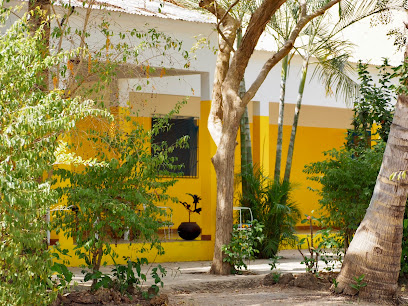
PEUTABE
Explore the rich history of Peutabe, a captivating historical landmark in Canchungo, Guinea-Bissau, surrounded by lush landscapes.

Cato cacharue chie canacan catige de região cacheu Guiné-Bissau
Experience the tranquility and cultural richness at Cato Cacharue Chie Canacan Catige de Região Cacheu, a hidden gem in Guinea-Bissau's spiritual landscape.

Canchungo Town Center
Discover the vibrant culture and daily life at Canchungo Town Center, the lively heart of Guinea-Bissau, where local traditions come to life.

CANOW
Explore the historical charm of Canow in Guinea-Bissau, where vibrant culture meets rich heritage and unforgettable experiences await.

Unmissable attractions to see
Empire Square
Explore the serene beauty of Empire Square in Bissau, a memorial park celebrating Guinea-Bissau's rich history and cultural resilience amidst lush greenery.
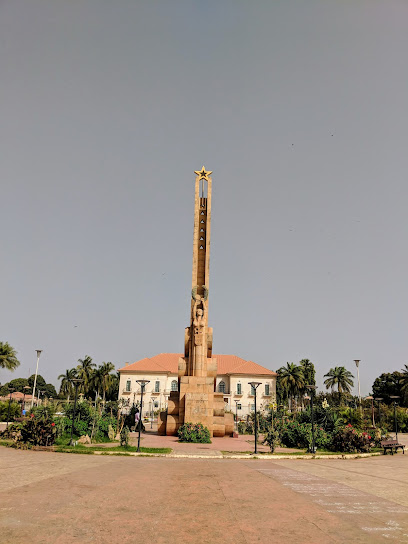
Cufada Lagoons Natural Park
Discover the serene beauty of Cufada Lagoons Natural Park, a national park in Guinea-Bissau, rich in wildlife and stunning natural landscapes.
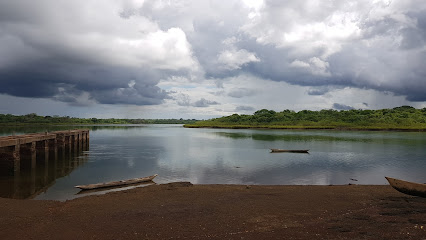
Fort Cacheu
Explore the historic Fort Cacheu in Guinea-Bissau, a stunning fortress showcasing the country’s colonial past and breathtaking natural scenery.
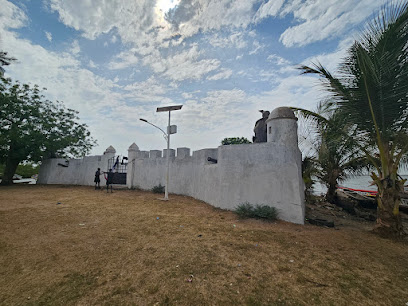
Memorial da Escravatura e do Tráfico Negreiro de Cacheu
Explore the Memorial da Escravatura e do Tráfico Negreiro de Cacheu, a poignant museum honoring the legacy of the transatlantic slave trade in Guinea-Bissau.
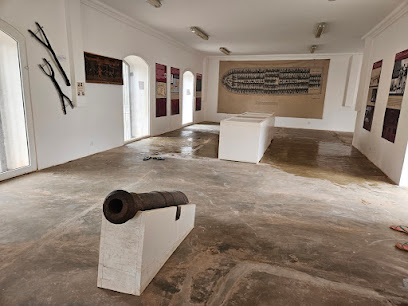
Essential places to dine
Restaurante Papa Loca
Discover authentic Guinea-Bissauan cuisine at Restaurante Papa Loca in Bissau – where every dish tells a story of flavor and tradition.
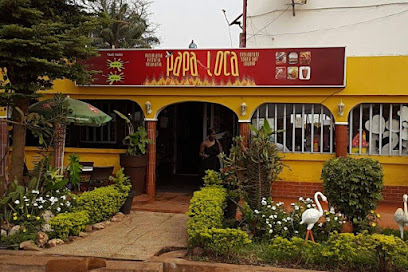
O Bistro
Savor authentic Italian flavors at O Bistro in Bissau – where every dish tells a story.
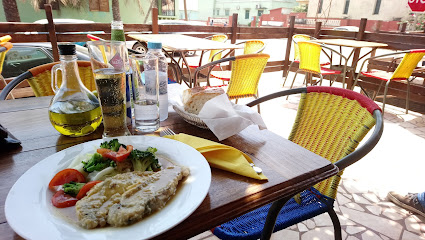
Coqueiros Bissau
Savor the flavors of Guinea-Bissau at Coqueiros Bissau - where local ingredients meet international flair.
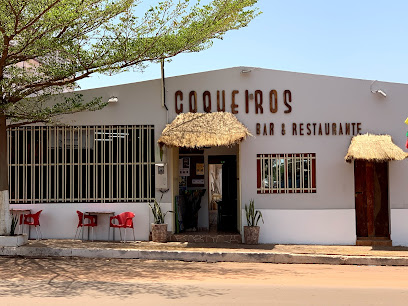
A Padeira Africana
Experience authentic Guinea-Bissauan cuisine at A Padeira Africana in Bissau - where every dish tells a story.
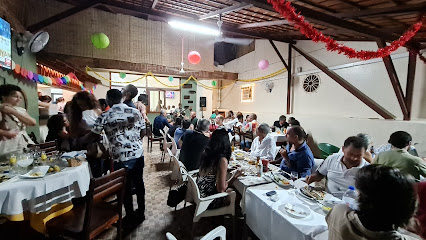
CANAFISTRA Crescendo a Beira Rio
Discover Crescendo a Beira Rio in Safim: Enjoy exquisite local cuisine with breathtaking riverside views in Guinea-Bissau.
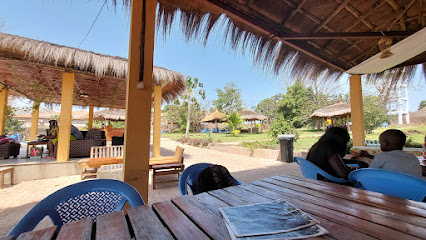
Almagui Restaurante & Apart-Hotel
Experience authentic Guinea-Bissauan cuisine at Almagui Restaurante & Apart-Hotel – your perfect retreat in Bissau.
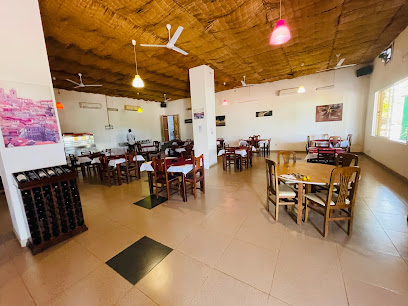
Restaurant Chez Amy
Experience authentic Guinea-Bissau flavors at Restaurant Chez Amy in Bissau - where tradition meets taste in every dish.
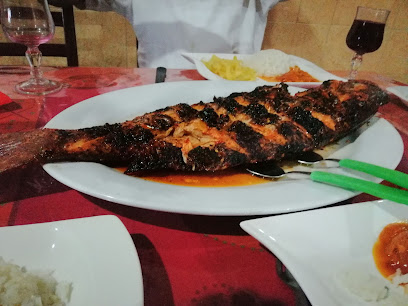
Restaurante Dona Fernanda
Experience authentic Guinea-Bissauan cuisine at Restaurante Dona Fernanda in Bissau - where every dish tells a story.
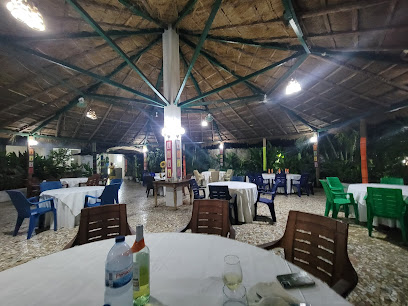
Handi - Taste of indian cuisine
Discover authentic Indian flavors at Handi - A culinary haven in Bissau offering traditional dishes in a warm and inviting atmosphere.
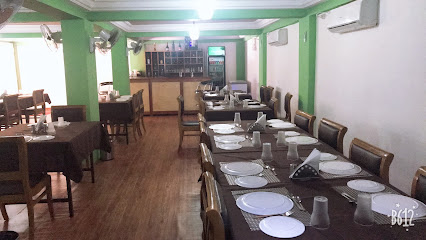
Restaurante Ali Baba
Experience authentic Guinea-Bissau cuisine at Restaurante Ali Baba - where every dish is crafted with love and tradition.
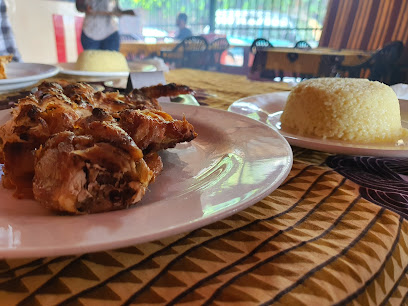
Restaurante Oásis
Discover the flavors of Guinea-Bissau at Restaurante Oásis – where local ingredients meet culinary excellence in Bissau.
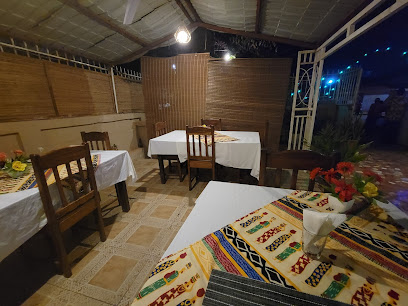
Restaurante Bar Samaritana
Discover authentic Guinea-Bissau cuisine at Restaurante Bar Samaritana in Bissau - where local flavors meet warm hospitality.
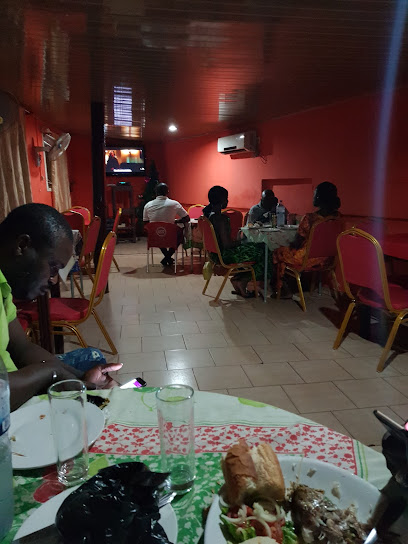
Café Delicioso (Cao de Mansor)
Discover the vibrant flavors of Guinea-Bissau at Café Delicioso – where every meal is an unforgettable experience.
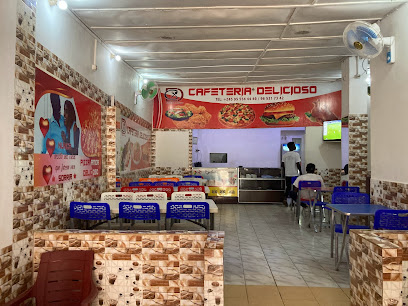
Rasoi, restaurant and beverages
Discover authentic Indian flavors at Rasoi in Bissau—where every dish tells a story of tradition and passion.
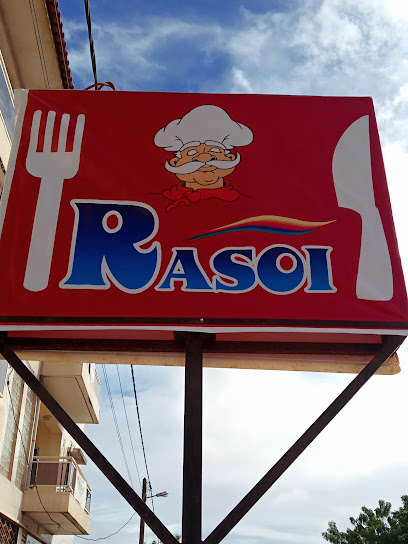
Restaurante Dom Bifanas
Experience authentic Guinea-Bissau cuisine at Restaurante Dom Bifanas – where every bite tells a story of local flavors.
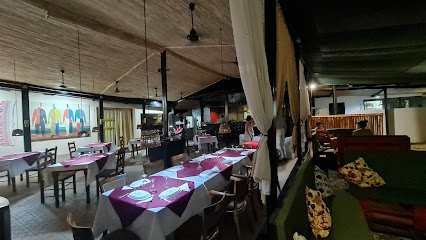
Markets, malls and hidden boutiques
Chapa de Bisaau
Explore the vibrant offerings of Chapa de Bisaau, a key supermarket in Bissau, where local flavors and fresh products await you.
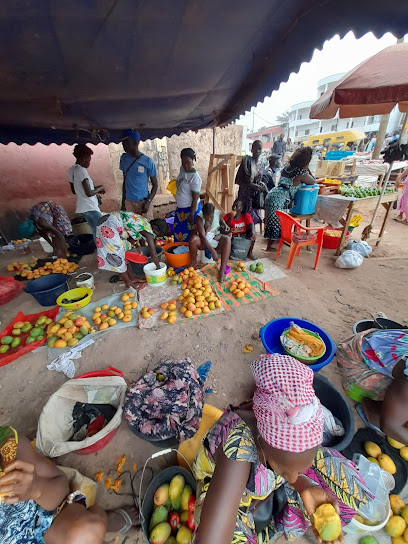
Fashion Canté
Explore the vibrant styles and cultural essence of Bissau at Fashion Canté, the premier clothing store for trendy apparel and accessories.
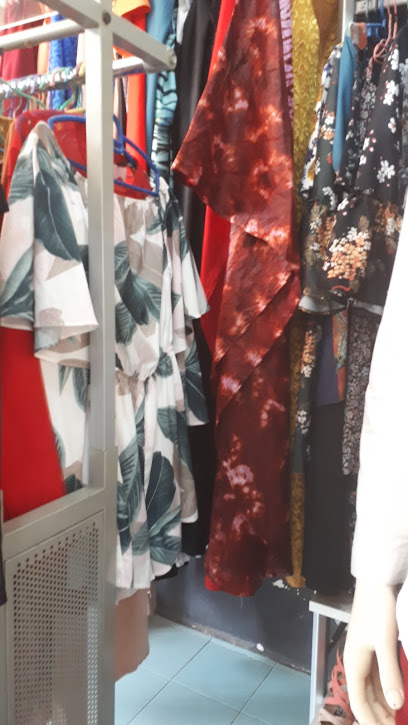
Loja Bela Comercial
Experience the vibrant local culture at Loja Bela Comercial, a bustling shopping mall in Canchungo, Guinea-Bissau.

Casa Nasser
Explore Casa Nasser in Canchungo, a lively shopping mall offering local crafts, unique souvenirs, and a taste of Guinea-Bissau's vibrant culture.

Mercearia ARMIGUINE
Explore authentic local flavors at Mercearia ARMIGUINE, a charming grocery store in the heart of Bissau, Guinea-Bissau.

Moullel & Pellal Cop
Explore the vibrant local culture at Moullel & Pellal Cop, where unique handicrafts and warm hospitality await every visitor in Bissau.
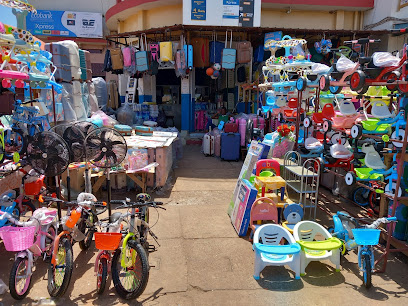
Espaço Vaidosa
Explore Espaço Vaidosa for a unique beauty shopping experience in Bissau, Guinea-Bissau, where local charm meets global beauty trends.

Casa Charbel
Discover the vibrant local culture at Casa Charbel in Calequisse, offering unique products and an authentic shopping experience.
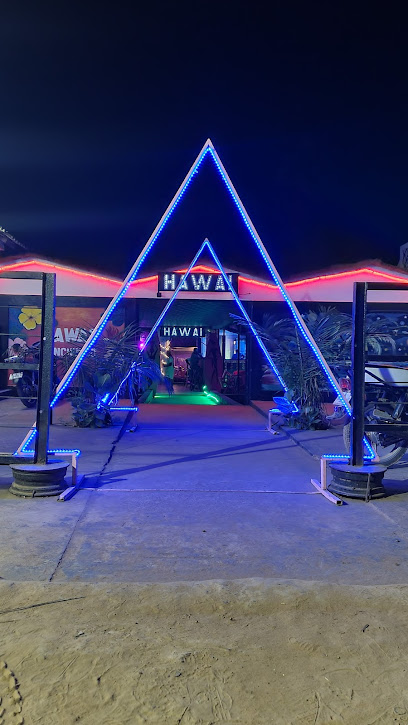
Centro de Produçao e venda de Mel puro
Explore the rich flavors of Guinea-Bissau at Centro de Produção e Venda de Mel Puro, where pure honey meets local tradition.

Shivam Comercio Geral Sarl
Explore Shivam Comercio Geral Sarl in Bissau for a unique selection of quality home goods and local souvenirs that capture the essence of Guinea-Bissau.
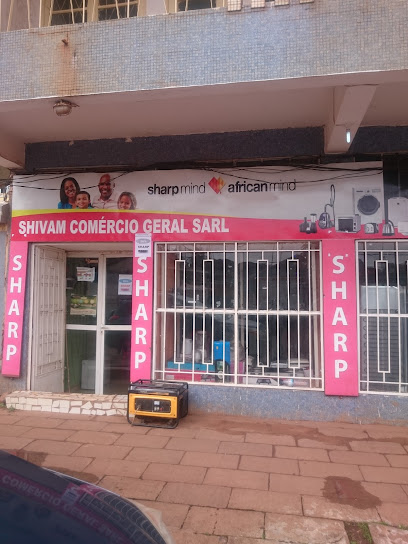
Loja Yamila
Explore Loja Yamila in Bissau - your destination for exquisite formal wear that blends local fashion with international elegance.
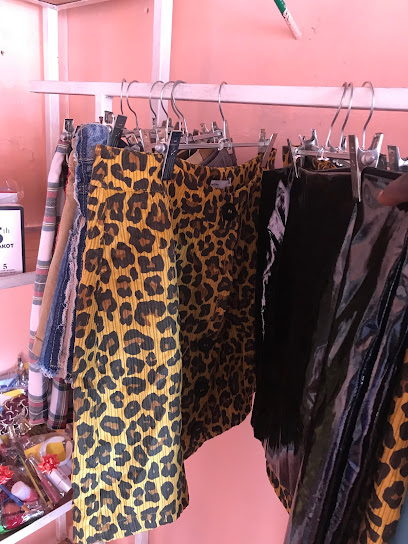
Sabores da Tabanca
Experience the vibrant flavors of Guinea-Bissau at Sabores da Tabanca, where authentic African goods come to life.
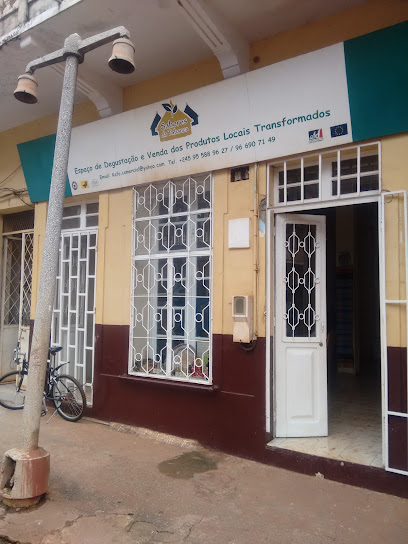
KUSSAS DI TCHON
Discover the vibrant shopping experience at KUSSAS DI TCHON, where authentic Guinea-Bissau crafts meet warm local hospitality.
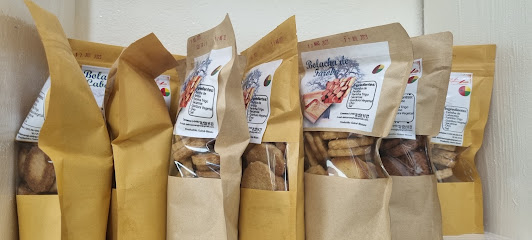
Buzy B'on P'inó
Explore Buzy B'on P'inó, a charming stationery store in Bissau offering unique writing supplies and art materials for every creative soul.
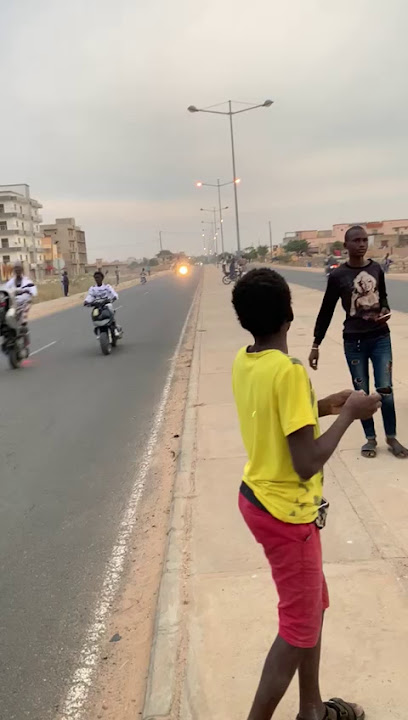
Loja Uno
Discover the latest fashion trends at Loja Uno, Bissau's premier clothing store offering unique styles and local designs.
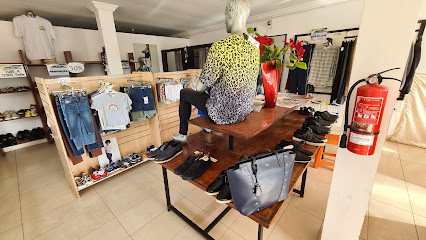
Essential bars & hidden hideouts
Coqueiros Bissau
Discover the rich flavors of Guinea-Bissau at Coqueiros Bissau, where local dishes meet a welcoming ambiance for a memorable dining experience.
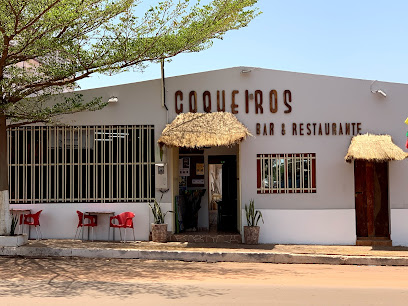
Contentor Di Tony
Experience the vibrant nightlife at Contentor Di Tony, a bar in Bissau blending local culture with a welcoming atmosphere and diverse drink selection.
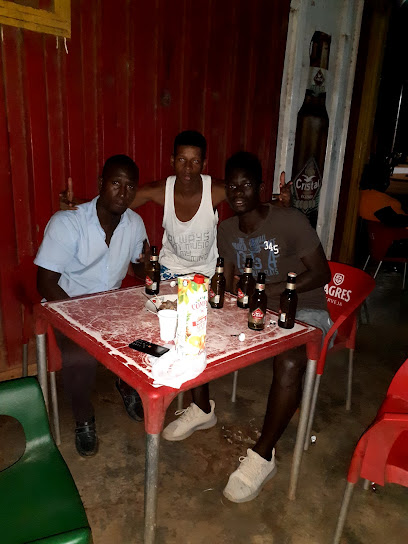
Kings Club
Discover the vibrant nightlife of Bissau at Kings Club, a live music bar celebrating local talent and providing an energetic atmosphere.
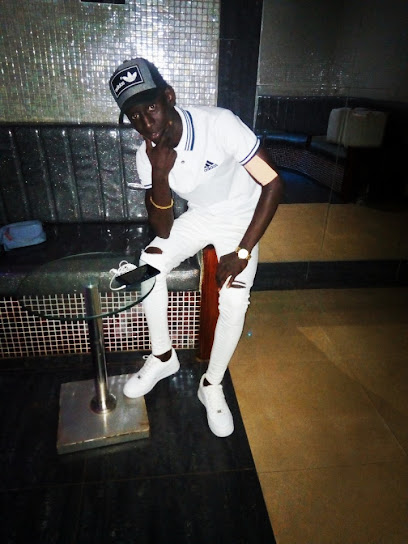
Liberty cafe bar lounge
Discover the lively atmosphere of Liberty Cafe Bar Lounge in Bissau, perfect for drinks, music, and a taste of local nightlife.
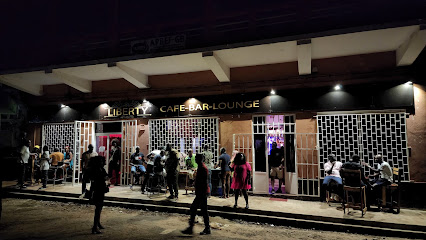
Casa Canchungo
Experience the warmth of Guinea-Bissau at Casa Canchungo, a charming bed and breakfast in the vibrant town of Canchungo.
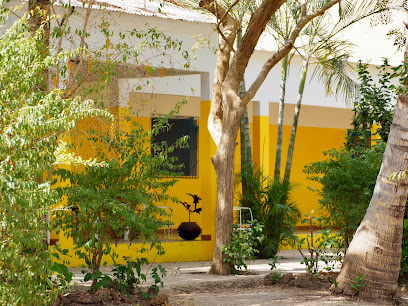
Vereda Tropical
Experience the vibrant atmosphere of Vereda Tropical in Bissau, where delicious cuisine meets a relaxing outdoor pool in a tropical paradise.
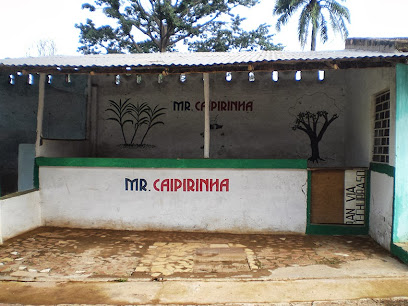
Antika Bissau
Discover the vibrant atmosphere of Antika Bissau, a top lounge in Guinea-Bissau, perfect for relaxation and socializing amidst chic surroundings.
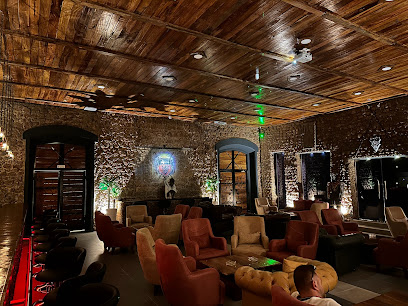
Bar CIJ Container Branch
Experience local flavors and a unique container bar atmosphere in the heart of Bissau at Bar CIJ Container Branch.

Le Blue
Discover Bissau's vibrant nightlife at Le Blue, where locals and tourists gather for drinks, music, and unforgettable experiences.
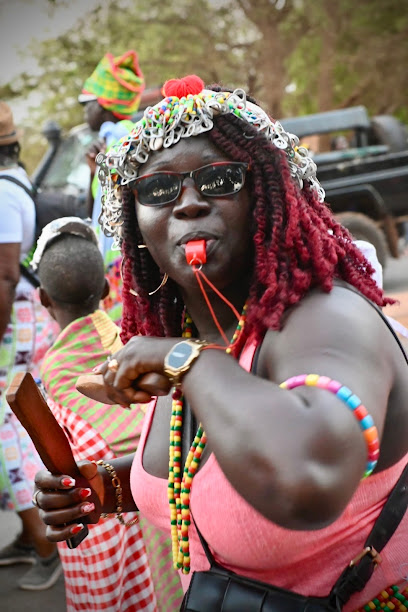
SUNFON
Discover the vibrant nightlife of Bissau at SUNFON, where local flavors and a lively atmosphere come together for an unforgettable evening.
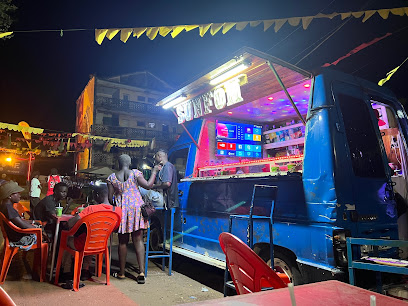
Queen Shisha
Experience the vibrant atmosphere and diverse shisha flavors at Queen Shisha, a must-visit bar in Bissau, Guinea-Bissau for relaxation and socializing.
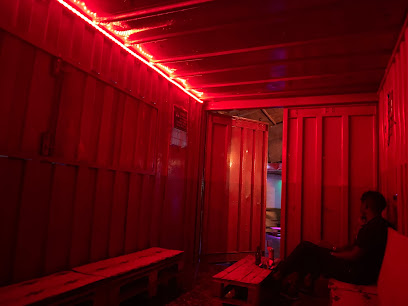
Restaurante Bar Cantinho de Tagme
Experience the vibrant atmosphere and local flavors at Restaurante Bar Cantinho de Tagme in Bissau, Guinea-Bissau.
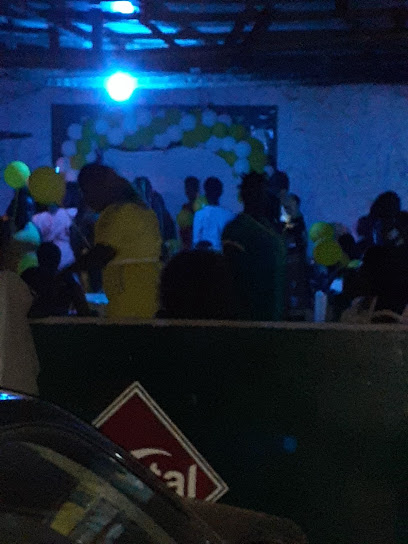
Baloba's Bar
Experience the lively atmosphere of Baloba's Bar in Bissau, where locals and tourists unite for unforgettable evenings filled with music and drinks.
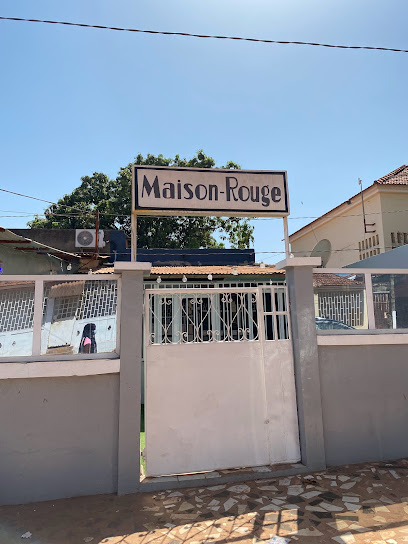
Barcafon Bar Restaurante
Immerse yourself in the local culture at Barcafon Bar Restaurante, the perfect spot in Bissau for drinks, relaxation, and vibrant ambiance.
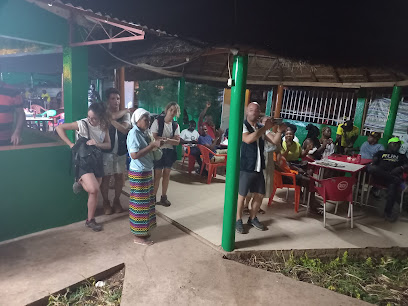
Local Phrases
-
- HelloOlá
[oh-lah] - GoodbyeAdeus
[ah-deh-oos] - YesSim
[seem] - NoNão
[now] - Please/You're welcomePor favor/De nada
[poor fah-vohr/deh nah-dah] - Thank youObrigado
[oh-bree-gah-doo] - Excuse me/SorryCom licença/Desculpe
[kohm lee-sen-sah/dehs-kool-peh] - How are you?Como está?
[koh-moo ehs-tah] - Fine. And you?Bem. E você?
[behm/eh vo-seh] - Do you speak English?Fala inglês?
[fah-lah een-glehs] - I don't understandNão entendo
[now ehn-tehn-doo]
- HelloOlá
-
- I'd like to see the menu, pleaseGostaria de ver o menu, por favor
[gohs-tah-ree-ah deh vehr ooh meh-noo/poor fah-vohr] - I don't eat meatNão como carne
[now koh-moo kahr-neh] - Cheers!Saúde!
[sah-oo-deh] - I would like to pay, pleaseGostaria de pagar, por favor
[gohs-tah-ree-ah deh pah-gahr/poor fah-vohr]
- I'd like to see the menu, pleaseGostaria de ver o menu, por favor
-
- Help!Socorro!
[soh-koh-roh] - Go away!Vai embora!
[vah-ee ehm-boh-rah] - Call the Police!Chame a polícia!
[shah-meh ah poh-lee-see-ah] - Call a doctor!Chame um médico!
[shah-meh oom meh-dee-koo] - I'm lostEstou perdido
[eh-stoh pehr-dee-doo] - I'm illEstou doente
[eh-stoh doo-en-teh]
- Help!Socorro!
-
- I'd like to buy...Gostaria de comprar...
[gohs-tah-ree-ah deh kohm-prahr] - I'm just lookingEstou só a ver
[eh-stoh soh ah vehr] - How much is it?Quanto custa?
[kwan-toh koos-tah] - That's too expensiveIsso é muito caro
[ee-soh eh moo-ee-toh kah-roo] - Can you lower the price?Pode baixar o preço?
[poh-deh bahy-shahr ooh prey-soo]
- I'd like to buy...Gostaria de comprar...
-
- What time is it?Que horas são?
[keh oh-rahz sah-ooh] - It's one o'clockÉ uma hora
[eh oo-mah oh-rah] - Half past (10)Meio-dia e meia
[may-oh dee-ah eh may-ah] - MorningManhã
[mahn-yah] - AfternoonTarde
[tahr-deh] - EveningNoite
[noy-cheh] - YesterdayOntem
[ohn-tehm] - TodayHoje
[oh-zheh] - TomorrowAmanhã
[ah-mahn-yah] - 1Um
[oom] - 2Dois
[doh-ees] - 3Três
[trehsh] - 4Quatro
[kwah-troh] - 5Cinco
[seen-koh] - 6Seis
[saysh] - 7Sete
[seh-teh] - 8Oito
[oy-toh] - 9Nove
[noh-veh] - 10Dez
[dehz]
- What time is it?Que horas são?
-
- Where's a/the...?Onde é o/a...?
[ohn-deh eh ooh/ah] - What's the address?Qual é o endereço?
[kwahl eh ooh ehn-deh-reh-soo] - Can you show me (on the map)?Pode mostrar-me (no mapa)?
[poh-deh moh-strahr-meh/noo mah-pah] - When's the next (bus)?Quando é o próximo (autocarro)?
[kwan-doo eh ooh proh-see-moh/ow-toh-kah-roo] - A ticket (to ....)Um bilhete (para ...)
[oom bee-lyeh-teh/pah-rah]
- Where's a/the...?Onde é o/a...?
History of Canchungo
-
Canchungo, located in the Cacheu region of Guinea-Bissau, has a rich history that traces back to early indigenous settlements. The area was originally inhabited by various ethnic groups, including the Balanta and the Papel people, who lived off the fertile lands and waterways. These early communities developed intricate social structures and cultural practices that continue to influence the region to this day.
-
In the 15th century, Portuguese explorers arrived on the coast of West Africa, marking the beginning of a long period of colonial rule. Canchungo, like much of Guinea-Bissau, was incorporated into the Portuguese Empire. The town served as a hub for the trade of goods, including slaves, which had a profound impact on the local population and economy. Portuguese architectural influences can still be seen in some of the buildings and infrastructure in Canchungo.
-
The mid-20th century was a turbulent time for Canchungo as Guinea-Bissau began its struggle for independence from Portugal. The African Party for the Independence of Guinea and Cape Verde (PAIGC), led by Amílcar Cabral, played a crucial role in mobilizing the local populace. Canchungo was a significant site of resistance, and many local residents joined the fight. The town witnessed several key battles and acts of defiance against colonial forces.
-
Guinea-Bissau gained independence in 1973, and Canchungo began to rebuild and develop as part of the new nation. The town saw improvements in infrastructure, education, and healthcare. Efforts were made to preserve and promote the cultural heritage of the region, including traditional dances, music, and crafts. Economic activities diversified, with agriculture remaining a cornerstone of the local economy.
-
Today, Canchungo is a vibrant town that reflects the dynamic history of Guinea-Bissau. It is known for its bustling markets, where locals and visitors can find a variety of goods ranging from fresh produce to artisanal crafts. The town is also a cultural hub, hosting festivals and events that celebrate the rich traditions and history of the region. Modern Canchungo is a testament to the resilience and enduring spirit of its people.
Canchungo Essentials
-
Canchungo is located in the northwestern part of Guinea-Bissau. The nearest international airport is Osvaldo Vieira International Airport in Bissau, the capital city, which is approximately 60 kilometers away. From Bissau, you can take a taxi or a shared minibus (candonga) to Canchungo. The journey typically takes around 1.5 to 2 hours by road.
-
Canchungo is a relatively small town, and many places can be reached on foot. For longer distances, local taxis and shared minibuses (candongas) are available. These are inexpensive and a common mode of transportation. Bicycle rentals are also an option for those who prefer to explore the area at their own pace.
-
The official currency in Guinea-Bissau is the West African CFA franc (XOF). Credit cards are accepted in some hotels and restaurants, but it is advisable to carry cash, especially in smaller establishments. ATMs are available in Canchungo, but it’s wise to withdraw sufficient cash in Bissau before traveling as ATMs can sometimes be out of service.
-
Canchungo is generally a safe destination for tourists, but standard precautions should be taken. Avoid walking alone at night in unfamiliar areas and keep an eye on your belongings in crowded places. While Canchungo does not have specific high-crime areas targeting tourists, it’s advisable to stay vigilant and aware of your surroundings.
-
In case of emergency, dial 112 for immediate assistance. Canchungo has a local police station and a medical clinic. It is recommended to have travel insurance that covers medical emergencies. For minor health issues, there are pharmacies in the town where you can purchase over-the-counter medications.
-
Fashion: Do dress modestly, especially when visiting religious or rural areas. Avoid wearing overly revealing clothing. Religion: Do respect local customs and traditions. Public Transport: Do be respectful and patient when using public transport. Avoid eating or drinking on public transport. Greetings: Do greet people with a handshake or a friendly nod. Be polite and respectful in your interactions. Eating & Drinking: Do try local dishes and accept food offerings graciously. Don't refuse hospitality as it is considered impolite.
-
To experience Canchungo like a local, visit the vibrant local markets where you can buy fresh produce and traditional goods. Engage with the locals, who are often friendly and willing to share stories about the town's history and culture. Don't miss visiting the nearby beaches, such as Varela, which is known for its beautiful scenery and tranquility. Joining a local festival or celebration can also offer a unique cultural experience.
Nearby Cities to Canchungo
-
Things To Do in Bissau
-
Things To Do in Buba
-
Things To Do in Quebo
-
Things To Do in Gunjur
-
Things To Do in Brikama
-
Things To Do in Lamin
-
Things To Do in Soma
-
Things To Do in Banjul
-
Things To Do in Serekunda
-
Things To Do in Serrekunda
-
Things To Do in Bakau
-
Things To Do in Farafenni
-
Things To Do in Janjanbureh
-
Things To Do in Kaolack
-
Things To Do in Mbour






